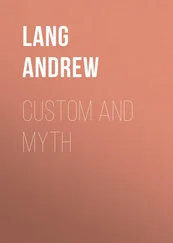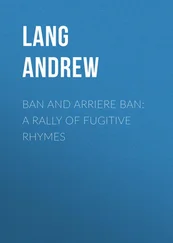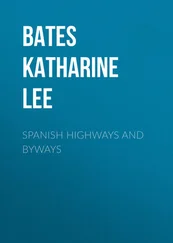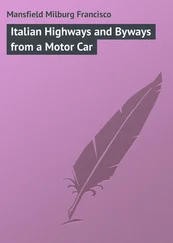Andrew Lang - Highways and Byways in the Border
Здесь есть возможность читать онлайн «Andrew Lang - Highways and Byways in the Border» — ознакомительный отрывок электронной книги совершенно бесплатно, а после прочтения отрывка купить полную версию. В некоторых случаях можно слушать аудио, скачать через торрент в формате fb2 и присутствует краткое содержание. Жанр: foreign_antique, foreign_prose, на английском языке. Описание произведения, (предисловие) а так же отзывы посетителей доступны на портале библиотеки ЛибКат.
- Название:Highways and Byways in the Border
- Автор:
- Жанр:
- Год:неизвестен
- ISBN:нет данных
- Рейтинг книги:4 / 5. Голосов: 1
-
Избранное:Добавить в избранное
- Отзывы:
-
Ваша оценка:
- 80
- 1
- 2
- 3
- 4
- 5
Highways and Byways in the Border: краткое содержание, описание и аннотация
Предлагаем к чтению аннотацию, описание, краткое содержание или предисловие (зависит от того, что написал сам автор книги «Highways and Byways in the Border»). Если вы не нашли необходимую информацию о книге — напишите в комментариях, мы постараемся отыскать её.
Highways and Byways in the Border — читать онлайн ознакомительный отрывок
Ниже представлен текст книги, разбитый по страницам. Система сохранения места последней прочитанной страницы, позволяет с удобством читать онлайн бесплатно книгу «Highways and Byways in the Border», без необходимости каждый раз заново искать на чём Вы остановились. Поставьте закладку, и сможете в любой момент перейти на страницу, на которой закончили чтение.
Интервал:
Закладка:
Was it in the Eden that Thomson, author of "The Seasons," learned to fish? Or was it in Jed? He was born at Ednam, – Edenham, – a village on the Eden, and he may have loved to revisit it in later years, and to catch the lusty speckled trout for which the stream has always been famous. Probably, however, he learned to throw a fly on Jed, for he passed his boyhood at Southdean – to which parish his father had been transferred as Minister long ere the son was fit to wield a rod – and he himself got his early education at Jedburgh. In Jed or in Eden, then, and perhaps in Teviot and Ale – he was much at Ancrum – he learned the art; and not unskilled in it indeed must he have been. Where in all literature can one find a description of trout-fishing so perfect as the following?
"Just in the dubious point, where with the pool
Is mix'd the trembling stream, or where it boils
Around the stone, or from the hollow'd bank
Reverted plays in undulating flow,
There throw, nice judging, the delusive fly;
And, as you lead it round in artful curve,
With eye attentive mark the springing game.
Strait as above the surface of the flood
They wanton rise, or, urged by hunger, leap,
There fix, with gentle twitch, the barbed hook;
Some lightly tossing to the grassy bank
And to the shelving shore slow dragging some
With various hand proportion'd to their force.
If yet too young, and easily deceived,
A worthless prey scarce bends your pliant rod,
Him, piteous of his youth, and the short space
He has enjoy'd the vital light of heaven,
Soft disengage, and back into the stream
The speckled captive throw; but, should you lure
From his dark haunt, beneath the tangled roots
Of pendent trees, the monarch of the brook,
Behoves you then to ply your finest art.
Long time he, following cautious, scans the fly,
And oft attempts to seize it, but as oft
The dimpled water speaks his jealous fear.
At last, while haply o'er the shaded sun
Passes a cloud, he desperate takes the death
With sullen plunge: at once he darts along,
Deep struck, and runs out all the lengthen'd line,
Then seeks the farthest ooze, the sheltering weed,
The cavern'd bank, his old secure abode,
And (lies aloft, and flounces round the pool,
Indignant of the guile. With yielding hand
That feels him still, yet to his furious course
Gives way, you, now retiring, following how,
Across the stream, exhaust his idle rage,
Till floating broad upon his breathless side,
And to his fate abandon'd, to the shore
You gaily drag your unresisting prize."
Many a long day of Spring and Summer must the man who could paint so perfect a picture have passed, rod in hand and creel on back, by the hurrying streams and quiet pools of some Border Water, many a time have listened to the summer breeze whispering in the leafy banks, and heard, as in a dream, the low murmur of Jed or Ale. And what sport must they have had in the old days when Thomson fished – and even in the days when Stoddart fished – when farmers were ignorant, or careless, of the science of drainage, and rivers ran for days, nay, for weeks after rain, clear and brown, dimpled with rising trout. What sport indeed of all kinds must there have been here in the south of Scotland in very ancient days when the country was mostly forest or swamp, and wild animals, now long extinct, roamed free over hill and dale. It has been mentioned a page or two back how the lady of Gamelshiel Tower was killed by a wolf. Here, at the bead waters of Blackadder – as the crow flies not a dozen miles from Gamelshiel – we are in the midst of a district once infested by wolves. Westruther, through which parish Blackadder runs, was originally "Wolfstruther," the "swamp of the wolves." And all over the surrounding country, place names speak of the beasts of the field. An MS. account of Berwickshire tells how Westruther was "a place of old which had great woods, with wild beasts, fra quhilk the dwellings and hills were designed, as Wolfstruther, Raecleuch, Hindside, Hartlaw and Harelaw."
"There's hart and hynd, and dae and rae,
And of a' wilde hestis grete plentie,"
as we read in the "Sang of the Outlaw Murray.
The last-mentioned name, Harelaw, calls up visions of another chase than that of the hare. Sir Thomas Dick Lauder in his "Scottish Rivers," (written sometime about 1848), mentions that one of the most curious facts connected with Harelaw Moor was that a man, who, Sir Thomas says, died "not long ago," recollected having seen Sir John Cope and his dragoons in full flight across it from the battle of Prestonpans, breathlessly demanding from all the country people they met information as to the shortest road to Coldstream.
"Says the Berwickers unto Sir John,
'O what's become o' all your men?'
'In faith,' says he, 'I dinna ken;
I left them a' this morning.'"
He must have been a very aged man, but if "not long ago" meant any time, as late, say, as the Twenties of last century, no doubt it would be possible that as a boy of eight or ten, he might have seen the panic-stricken dragoons spurring over the moor. Such a sight would remain vivid in the memory of even a very old man. Childhood's incidents outlive all others.
Above Harelaw Moor, on a feeder of the Blackadder, is Wedderlie, formerly an old Border keep of the usual pattern, but towards the close of the seventeenth century embodied with a fine building in the Scottish style of that day. It is said to have belonged originally to that family, the Edgars, the graves of two members of which are commemorated by the Twin-Law Cairns. The family name lives still in that of the neighbouring Edgar-burn, near to which streamlet is Gibb's Cross, said to be the scene of a martyrdom for sake of the Reformed Faith; and hard by is Evelaw Tower – a house apparently without a history – still in tolerable preservation. At Wedderlie, of old time, says Sir Thomas Dick Lauder, there stood a very ancient chapel, of which some traces of a vault remain, or remained at a recent date. Local tradition had it that at time of the Reformation the monks hid in this vault all their church plate and other precious possessions, meaning at the first convenient opportunity to remove them to a place of greater safety. The convenient opportunity, it was thought in more modern times, had never come, for in a cave hard by the vault there was one day discovered a great quantity of coins – all of which, by the way, speedily and mysteriously disappeared. It is said, however, that they were not of dates that could in any degree connect this cache with the Reformation, and it is suggested in Sir Thomas's book that they were concealed there by the inhabitants of Wedderlie during the Religious wars of the seventeenth century. Those "in the know" may all have been killed, of course; the secret of the hiding place was not likely to be within the ken of more than one or two.
These finds of coins of all dates are by no means rare in the Scottish border counties. One would fain know something of those who hid them, and of the events which were passing at the time when they were buried. Were they the spoil of some reiver, ravished from a roof-tree blackened and left desolate south from Cheviot and Tweed; spoil for convenience sake thus put away by one to whom the chance of a more convenient season to recover it was ended by a bloody death? Or were they, sometimes, store, of coins hastily secreted by quiet country folk fleeing in terror from the violence of English soldiery – men such as they who came north with Hertford in 1544, whose orders were to put man, woman, and child to fire and the sword, without exception, if any resistance should be met with? What wonder if the harmless country people then left all, and fled for their lives and the honour of their women! For what so easy as to find excuse to carry out such orders? A child ill treated, a woman outraged; and a man – husband, father, lover – mad with horror and impotent rage, "resisting!"
Читать дальшеИнтервал:
Закладка:
Похожие книги на «Highways and Byways in the Border»
Представляем Вашему вниманию похожие книги на «Highways and Byways in the Border» списком для выбора. Мы отобрали схожую по названию и смыслу литературу в надежде предоставить читателям больше вариантов отыскать новые, интересные, ещё непрочитанные произведения.
Обсуждение, отзывы о книге «Highways and Byways in the Border» и просто собственные мнения читателей. Оставьте ваши комментарии, напишите, что Вы думаете о произведении, его смысле или главных героях. Укажите что конкретно понравилось, а что нет, и почему Вы так считаете.












